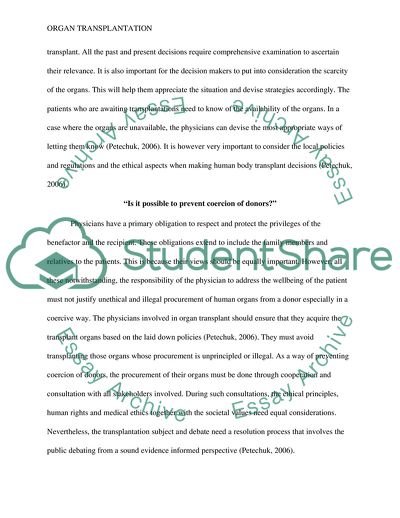ORGAN TRANSPLANTATION Essay Example | Topics and Well Written Essays - 500 words. https://studentshare.org/medical-science/1783597-organ-transplants-what-you-need-to-know
ORGAN TRANSPLANTATION Essay Example | Topics and Well Written Essays - 500 Words. https://studentshare.org/medical-science/1783597-organ-transplants-what-you-need-to-know.


